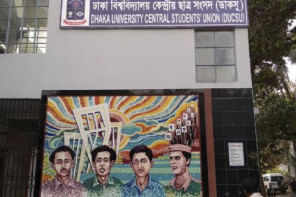Imports 70pc costlier for higher tariffs: PRI
Bangladeshi consumers pay 70 percent more than the prices in the international market to buy imported and import-substitute products due to the country's high tariff regime, said a think-tank yesterday.
For this reason, Dhaka is said to be one of the most expensive cities in the world to live in, said Zaidi Sattar, chairman of the Policy Research Institute of Bangladesh.
“Any consumer goods you buy, the prices are well above the international levels. It is because the imports are subjected to the highest protective tariffs in the region, if not the world.”
He made the remarks while presenting a paper -- 'Protection Policy, Export Diversification and the Forgotten Consumer' -- at a discussion held at the think-tank's office in Dhaka.
Bangladesh has the highest average tariff in comparison to some selected countries such as China, India, Indonesia, Vietnam, Thailand and Turkey, according to the paper.
For instance, in 2016-17, the total tariff protection was 70 percent, meaning consumers paid about $14.2 billion more for the products that year. The amount is roughly 5.7 percent of that fiscal year's GDP.
According to Sattar, tariff protection is a nationalistic economic and trade policy granted to promote domestic industries. And because of restriction on imports, the prices of import-substitute goods produced domestically also increase, he said.
“So, protection raises domestic prices above the international prices. Protection hurts consumers,” said Sattar, while terming tariff protection as subsidy on import-substitute production.
At present, consumer goods that face the highest nominal protection rates are air coolers, carbonated drinks, plastic tableware, kitchen ware, ceramic tableware and footwear. “Consumers suffer the most from existing tariff policy and they are a big part of the economy. Yet consumers seem to have no voice in pre-budget talks -- the budget affects them,” Sattar said.
When the interests of consumers and producers are in conflict, there is a need to strike a balance, according to the expert. The high tariff protection also discourages exports as tariffs make sales in the domestic market more profitable than exports.
“Protective tariff has an inherent bias against exports,” Sattar added.
Tariff protection creates inefficiency among producers, so they should not continue for long, said AB Mirza Azizul Islam, a former finance adviser to a caretaker government.
“There should be a transition policy,” he added. Citing the protection given to import-substitute industries such as steel, PRI Executive Director Ahsan H Mansur said any country can produce anything but the question that needs to be asked is at what price.
He stated the high tariffs on steel imports as a case in point.
“Why are you buying steel at Tk 75,000 a tonne? Bangladesh has never had a comparative advantage in steel. We are not allocating our resources properly,” he added.
Bangladesh has not taken serious tariff reforms since the mid-90s, said Selim Raihan, executive director of the South Asian Network on Economic Modelling. Trade policy in Bangladesh is primarily a revenue-seeking policy, he added.
“Development works are suffering for the spiral in rod and cement prices. Why is such a high protection?” asked Ghulam Rahman, president of the Consumers Association of Bangladesh.
He went on to rue that consumers' interests are not considered properly in government policy-making.
“It is never said that the budget should be consumer-friendly. Rather, it is said that the budget should be business-friendly, industry-friendly. Political parties also do not talk about the interests of consumers.”
Rahman said consumers were assured that the prices of sugar would not increase ahead of the month of Ramadan but it has already crept up Tk 4 per kg.

 For all latest news, follow The Daily Star's Google News channel.
For all latest news, follow The Daily Star's Google News channel. 



Comments